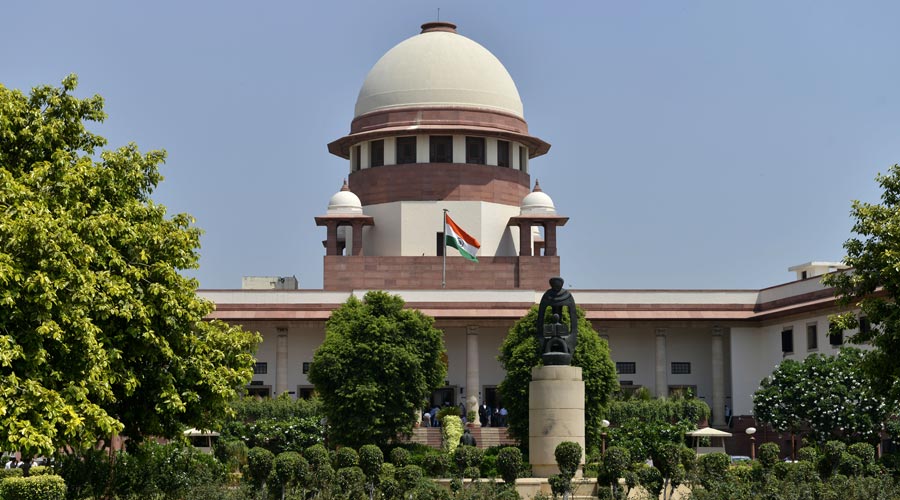The Centre has decided to re-examine and reconsider provisions of the colonial-era sedition law, it said in an affidavit in Supreme Court on Monday, days after it had defended the colonial-era law and asked the apex court to dismiss appeals challenging it.
According to ndtv.com, the Centre said in a new affidavit filed in the Supreme Court: "In the spirit of Azadi ka Amrit Mahotsav (75 years of Independence) and the vision of PM Narendra Modi, Government of India has decided to re-examine and reconsider the provisions of Section 124A, Sedition law."
The government urged the Supreme Court to wait for the review before deciding on the case based on a clutch of petitions filed by the Editors' Guild of India and others.
In July last year, the apex court expressed concern at the widespread misuse of the sedition law to target critics of the governments at the Centre and in states. The court had asked the Union government why it was not repealing the provision used by the British to silence people like Mahatma Gandhi.
On Saturday, the government defended the sedition law and a 1962 verdict of a constitution bench upholding its validity, saying they have withstood "the test of time" for about six decades and the instances of its abuse would never justify reconsidering it.
On Thursday, a bench of three judges comprising Chief Justice NV Ramana, Justices Surya Kant and Hima Kohli had said that it would on Tuesday hear arguments about sending the pleas challenging the law on sedition to a larger bench for reconsidering the 1962 verdict of a five-judge constitution bench in the Kedar Nath Singh case.
On Thursday, at the outset, Solicitor General Tushar Mehta, appearing for the Centre, sought a few more days' time for filing the reply, saying the draft response made by lawyers awaited approval by competent authority as the issue is of extreme importance.
"Secondly, some fresh matters have been served recently and the contents of those pleas also needed a response," he said.
"List this matter on next Tuesday at 2 pm. The Solicitor General to file counter (affidavit) by Monday. No further adjournments (will be granted)," the CJI said.
Agreeing to examine the pleas filed by the Editors Guild of India and former Major-General S G Vombatkere, challenging the Constitutionality of Section 124A (sedition) in the IPC, the apex court had said its main concern was the "misuse of law" leading to rise in number of cases.
The Supreme Court on Thursday decided to consider whether a seven-judge constitution bench should examine the validity of the sedition law although attorney-general K.K. Venugopal had opposed the idea and, instead, sought court-mandated guidelines to prevent the law’s misuse.
Venugopal, who was assisting the court in the matter, clarified that “my stand may differ with that of the Union of India”.
Solicitor-general Tushar Mehta, appearing for the Centre, remained non-committal on the government’s stance saying it had to be considered by the “competent authority”.
The bench of Chief Justice N.V. Ramana and Justices Surya Kant and Hima Kohli fixed the next hearing for 2pm on May 10 while making it clear that “no further adjournment would be granted”.
A batch of petitions has sought quashing of the sedition law, IPC 124A, citing its increasing misuse by various governments. A five-judge bench had in 1962 upheld the law’s validity.











